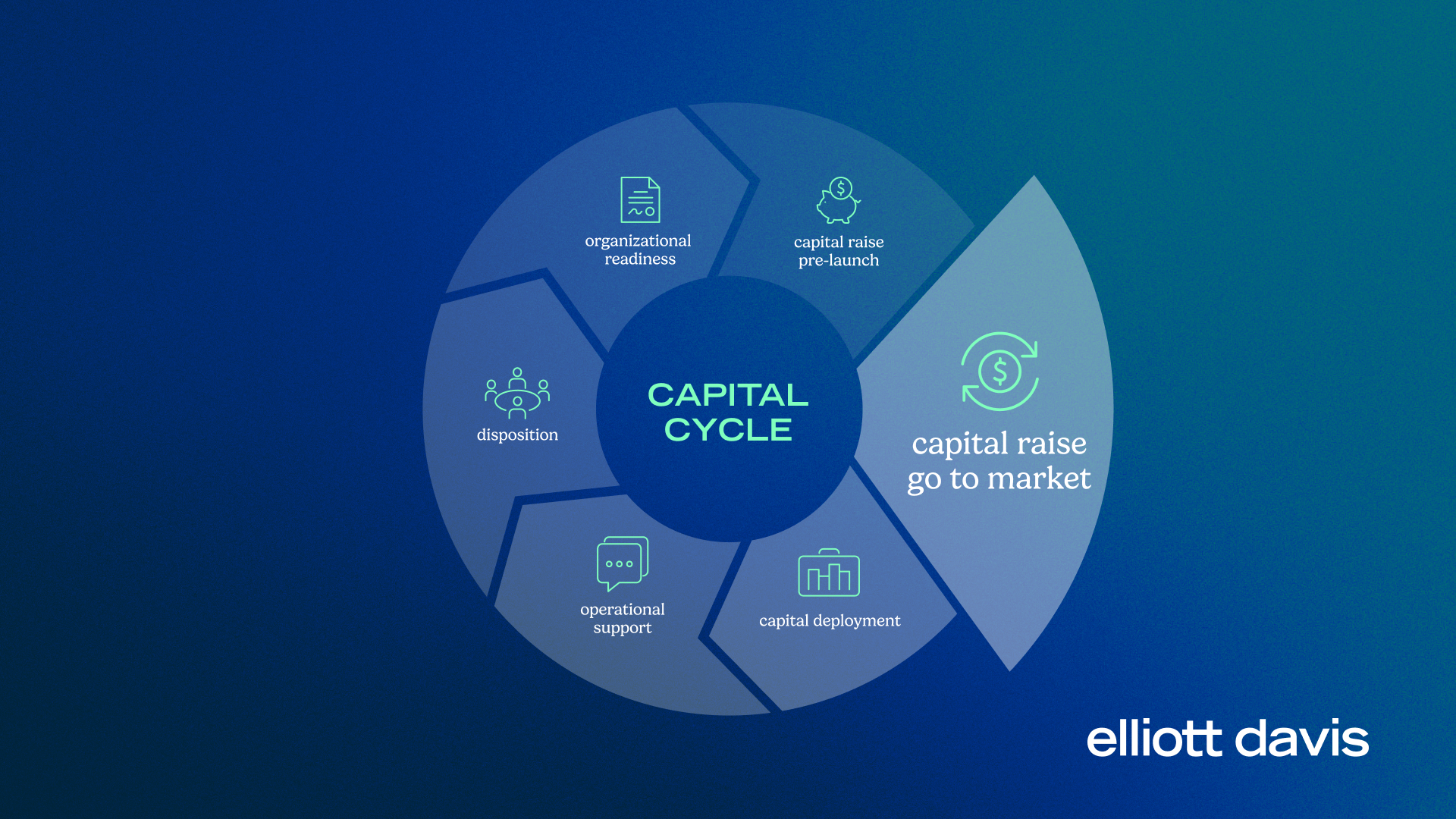search for solutions by category, industries, insights, and people.



For middle-market real estate firms, the decision to raise private capital is a strategic move that influences go-to-market execution, asset selection, and exit planning.
The ability to raise capital is one of the most important skills in real estate. Without it, firms are limited to their own resources and constrained in their growth. For those new to capital raising, the process can feel overwhelming: Where do I start? Who do I ask? What’s involved?
Private capital offers a compelling alternative to institutional funding, providing agility, control, and faster access to capital. High-net-worth individuals, family offices, as well as friends and family investors typically require less frequent reporting and offer more flexible terms.
So, how do you know if private capital is a good fit for your capital stack?
The type of capital you raise should reflect the nature of your assets and your intended exit plan. For example:
Newer developers often begin with high-net-worth capital by necessity. Institutional partnerships typically come later, once a firm has built a track record and scaled its deal size. At that point, firms can choose to continue with private capital or transition to institutional relationships.
For more information on considering institutional capital, see our related article.
High-net-worth investors typically prioritize annual distributions and tax outcomes over complex financial structures. While the volume of investors required to complete the capital stack may create additional complexity, they are generally more comfortable with less restrictive operating agreements, simplified profit and loss allocations, and may not require GAAP reporting or formal governance frameworks.
Once trust is established, decision-making tends to be faster, and these investors are often willing to participate in smaller projects. Their return expectations and due diligence requirements are more relaxed compared to institutional investors. Their involvement allows for more flexibility in structuring deals, making them a valuable option for firms seeking agility and control in their capital strategy.
To successfully raise private capital, firms must be operationally ready. Readiness may include:
Private capital is often sourced through relationships. To build a strong pipeline, firms should actively cultivate:
According to JP Morgan’s 2024 Global Family Office Report, nearly 80% of family offices now engage external investment advisors, and their portfolios allocate an average of 45% to alternative assets like real estate, targeting returns around 11%. Despite this professionalization, family involvement remains central, with 90% of offices involving relatives in investment decisions, and more than half of U.S.-based family offices led by the founding principal.
Family offices are deeply invested in real estate and value long-term partnerships. Their priorities often center on governance, generational wealth preservation, and strategic alignment with their investment partners.
Great capital raisers know how to clearly explain their business and how it helps others build wealth. Investors want realistic projections, transparent communication, and confidence in your team’s ability to execute. Be prepared to clearly explain your track record across market cycles, the property's market conditions and risks, your expected returns, and the steps you've taken to verify title, environmental, and legal details.
Even if your contacts aren’t ready to invest, they may know someone who is. Once you’ve raised capital from your network, you can leverage their credibility to expand your reach and pursue larger deals.
At Elliott Davis, we work with real estate firms entering into private capital partnerships. Our team is here to support you at every stage of the real estate capital lifecycle. We help firms build the infrastructure needed to raise and manage private capital effectively by:
Contact us today to get started.
The information provided in this communication is of a general nature and should not be considered professional advice. You should not act upon the information provided without obtaining specific professional advice. The information above is subject to change.